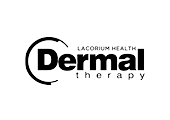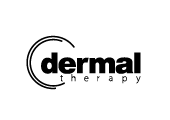What Could Be Causing Your Facial Eczema and Irritated Skin

Area
Eczema & DermatitisKey Takeaways:
- The skin on your face, particularly your eyelids, is very delicate (just 0.5mm thick), making it highly susceptible to eczema and irritation.
- Causes of facial eczema include irritants in skincare products, allergens, and changes in weather, all of which can compromise the skin barrier.
- When choosing a cream for eczema, look for one specifically formulated for delicate facial skin and barrier repair, like Dermal Therapy Face & Eyelid Eczema Cream.
Are you tired of the persistent itch, redness, and discomfort of facial eczema or irritated skin? It’s a frustrating experience that can impact your comfort, confidence, and daily life. This blog explains the triggers, both obvious and hidden, so you can take the first step towards finding effective relief and the best eczema cream to restore your skin health.
Understanding Facial Eczema & Why Your Face Feels Irritated
If you’ve ever dealt with eczema on your face, you know it’s so much more than just dry skin. Common symptoms include intense itching, redness, dryness, flakiness, and sometimes small bumps or blisters.
Facial eczema is often a manifestation of atopic dermatitis, a chronic inflammatory skin condition affecting around 10–20% of children and 2–10% of adults. Essentially, this means your skin’s protective barrier isn’t fully effective, leaving your delicate facial skin vulnerable to irritants and struggling to retain moisture.
8 Common Triggers for Facial Eczema & Irritated Skin
Understanding eczema, face skin types, and how this affects the skin barrier can help us identify and manage the factors contributing to flare-ups. Here are eight common causes and how best to avoid them.
1. Genetic Factors
Eczema often runs in families, indicating a strong genetic link. Many people with facial eczema have inherited specific genes that affect their skin’s barrier function, such as the filaggrin gene. When this protective barrier is naturally weaker, your skin is more susceptible to moisture loss, environmental irritants, and allergens.
2. Irritants in Skincare & Cosmetics
Some skincare and cosmetic products contain harsh ingredients like soaps, fragrances, and dyes that can irritate sensitive facial skin. They often strip away natural oils and further disrupt the skin barrier, making it more prone to eczema flare-ups. Look for dermatologist-tested, fragrance-free, and hypoallergenic products.
3. Allergens
Your facial eczema might also be a reaction to specific allergens, like pollen, dust, pet hair, or contact allergens like nickel. If you suspect these are triggers, a patch test by a dermatologist can help identify them.
4. Weather Extremes
Dry air, cold winds, or excessive heat can really impact your facial skin. These conditions strip away essential moisture and compromise your skin’s delicate barrier, leaving it more vulnerable to irritation.
5. Internal & Lifestyle Triggers
What’s happening inside your body can significantly impact your facial eczema. Stress is a well-established trigger, often causing your body to release hormones that heighten inflammation and weaken your immune response.
6. Dietary Influences
Some people find that certain foods, like dairy or nuts, might influence their facial eczema. Everyone is different, so rather than cutting out whole food groups on a hunch, talk to your doctor or a dietitian if you think there’s a connection.
7. Alcohol Consumption
While the direct link isn’t fully understood, alcohol can potentially exacerbate facial eczema. It often leads to dehydration, which dries out your skin and promotes systemic inflammation.
8. Other Potential Factors
Sometimes, even things like a build-up of sweat or natural hormonal shifts during puberty or a menstrual cycle can make your facial eczema flare up. It’s related to how your skin reacts to these subtle changes.
Your Guide to Soothing Facial Eczema & Finding Relief
Beyond identifying triggers, the real power lies in knowing how to calm and care for your sensitive facial skin. Here are some dermatologist-backed tips to ease eczema and itching.
Essential Skincare Habits for Sensitive Faces
- Gentle Cleansing: Wash your face with lukewarm water and a mild, non-foaming cleanser to avoid stripping your skin’s natural oils.
- Consistent Moisturising: Immediately after cleansing, apply a rich, emollient moisturiser to lock in hydration while your skin is still damp.
- Avoid Over-Exfoliation: Eczema skincare products should never include abrasive scrubs, strong chemical exfoliants, or harsh products that can further irritate the skin barrier.
Finding Cream for Eczema Itching and Irritation
While the best cream for eczema itching and irritation will depend on your unique skin type, Dermal Therapy Face & Eyelid Eczema Cream is specifically designed for delicate facial skin.
- Targeted Relief: The skin on your face and eyelids is very delicate and the thinnest on your body (just 0.5mm thick). This cream is formulated to provide gentle yet effective relief without causing further irritation.
- Soothes Itching & Redness: Contains 5% Colloidal Oatmeal which calms inflammation, reduces redness, and provides soothing relief.
- Gentle & Discreet: Non-greasy, free from common irritants, and goes on clear with no noticeable residue.
How to Soothe Irritated Skin with Dermal Therapy
Refining your skincare routine can make a meaningful difference. For best results, here’s how to use Dermal Therapy Face & Eyelid Eczema Cream:
- Cleanse Gently: Use a mild, pH-balanced cleanser and lukewarm water, then pat your face dry.
- Patch Test First: Test your eczema cream on a small area 24 hours prior to ensure no reaction.
- Apply to Damp Skin: Apply the cream to slightly damp skin right after cleansing for best absorption.
- Gentle Application: Using clean fingertips, dab and smooth a thin layer over affected areas. Avoid vigorous rubbing.
- Apply Regularly: Use at least twice daily, or as advised by your healthcare professional.
Taking Control of Your Facial Eczema Journey
Understanding what triggers your facial eczema is empowering. From genetics and environment to stress and diet, identifying your triggers and adopting a consistent, gentle skincare routine is key to lasting relief.
For further guidance, read How to Manage Eczema on Your Eyelids and Unlocking the Secrets to Hydrated Skin.
The journey towards calm, clear skin can be tough. But armed with these tips and Dermal Therapy Face & Eyelid Eczema Cream, you can find lasting relief. Find a store near you today.
References
- National Eczema Council – Eczema Statistics
- Healthline.com – Patch Test for Contact Dermatitis Allergens
- Eczema.org – Find out more about filaggrin
- Nationaleczema.org – Managing Stress from Eczema


































My redness is on my left cheek where my glaucoma medicine drops
Hi Sarah,
Thank you for your comment and sharing your experience!
We’re sorry to hear you’re experiencing irritation from your glaucoma eye drops. If the irritation is bothering you, it’s a good idea to check in with your eye specialist. They might be able to suggest a gentler option or a preservative-free version that’s easier on your skin.
In the meantime, we would recommend our Face & Eyelid Eczema Cream which can be used for soothing and relieving irritated skin. If you’d like to hear more on this, please reach out to our Customer Service team through our Contact Us Form.
Thank you,
The Dermal Therapy team